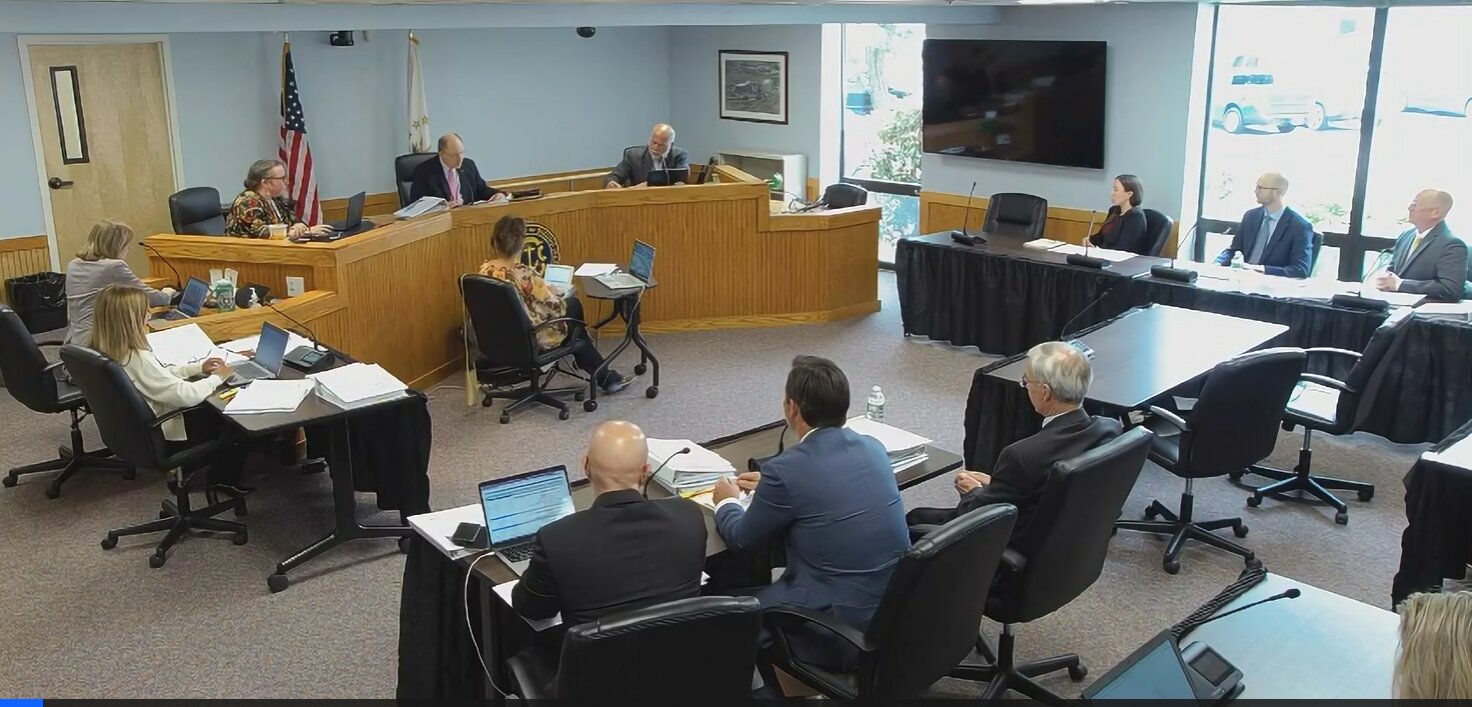Mass. wind farm needs R.I. regulators’ approval. But is SouthCoast Wind Farm an impossible choice?
R.I. energy regulator calls contract termination ‘a huge problem’
The state’s top energy regulator vented over the “Hobson’s Choice” posed when offshore wind developers seek to renege on their contracts with utility companies.
This item is available in full to subscribers.
Please log in to continue |
Register to post eventsIf you'd like to post an event to our calendar, you can create a free account by clicking here. Note that free accounts do not have access to our subscriber-only content. |
Day pass subscribers
Are you a day pass subscriber who needs to log in? Click here to continue.
Mass. wind farm needs R.I. regulators’ approval. But is SouthCoast Wind Farm an impossible choice?
R.I. energy regulator calls contract termination ‘a huge problem’
PROVIDENCE — The state’s top energy regulator vented over the “Hobson’s Choice” posed when offshore wind developers seek to renege on their contracts with utility companies.
“It’s a huge problem from a ratepayers’ perspective,” Ronald Gerwatowski, who heads the Rhode Island Energy Facility Siting Board (EFSB), said during a public meeting on Monday.
“It has the potential to create a dynamic where project developers can simply refuse to go forward when economic changes make it cheaper to pay the penalty.”
Yet regulators also want to support the industry critical to advancing the state’s economic and environmental future, he said.
And a Massachusetts wind farm with a Rhode Island component is putting that seemingly impossible choice directly before them.
Southcoast Wind Energy LLC confirmed earlier this month it wants to end existing contracts to sell power to utility companies in the hopes of getting a better deal. The news comes as Rhode Island regulators weigh whether to continue with their own review of a portion of the project.
The SouthCoast Wind Farm planned off the coast of Martha’s Vineyard would bring 1,200 megawatts of electricity to Massachusetts. But the company needs the ESFB’s approval on plans to run an underwater transmission line from the wind farm up the Sakonnet River, over Portsmouth and out Mount Hope Bay to reach land in Somerset’s Brayton Point.
Francis Slingsby, CEO of Southcoast Energy LLC, insisted the transmission line review should not stop even though the power agreements are in flux.
“SouthCoast is a frontrunner project and we’re very well placed to deliver,” Slingsby told the ESFB on Monday. “From a development perspective, this is absolutely a viable project.”
Change in bottom line
What’s not viable according to the company, are the 2019 agreements setting what utility companies would pay for the power from this project – a reflection of rising interest rates and supply chain slowdowns.
A second Massachusetts wind farm developer, Commonwealth Wind, sought to end its existing power purchase agreements for similar financial reasons. And Slingsby said it’s an industry-wide challenge.
Gerwatowski, who also chairs the Rhode Island Public Utilities Commission, was not so easily convinced. During the 2.5-hour hearing, he grilled Slingsby and other company leaders about their ability to win a new contract, as well as the timeline under which their existing plans fell apart.
SouthCoast developers in November shared doubts about the finances of their project with Massachusetts regulators. But they didn’t confess those same concerns with Rhode Island regulators until Gerwatowski ordered them to.
Slingsby suggested in an interview with Commonwealth Magazine that the company was still trying to honor its existing contracts. A few months later, in February, a company-commissioned independent study concluded that project costs had risen by up to 30% since original contracts were signed.
Yet it was only on June 2 that Slingsby shared the results of the study and confirmed in writing to Rhode Island regulators that the company wanted to end the existing agreements in Massachusetts.
“It’s hard for me to understand why this wasn’t given to us right away,” Gerwatowski said. “That’s the part that troubles me.”
Slingsby insisted that the company was previously trying to assess alternatives to make good on its existing contracts, like federal tax credits or an “uplift” in the existing payments.
The company’s decision became clearer after Massachusetts published a draft solicitation in May seeking additional offshore wind power, which offered the chance for SouthCoast to end its existing agreements and seek new ones, Slingsby said.
‘Were you hoping we would miss it?’
Gerwatowski reprimanded the company for withholding information about the upcoming proposal process, namely that SouthCoast will be docked points for ending its existing contracts, ostensibly creating a disadvantage to competitors.
“Apparently you didn’t think that was important enough to tell us,” he said. “Were you hoping we would miss it?”
While the ESFB’s review only pertains to the transmission line, not the power purchase agreements, Gerwatowski stressed the significance of the project’s contracts for the whole industry.
“This could easily relate to future Rhode Island wind contracts or other states,” he said.
Rhode Island offshore wind proponents, however, remain bullish on the Revolution Wind Farm, which has not sought to renegotiate or end its agreements with Rhode Island Energy.
Still, Gerwatorski lamented the flaws of a process that lets developers walk away from their contracts to try and get more money – in turn driving up costs for ratepayers.
“It’s a huge problem,” he said. “Once contracts are approved, ratepayers should not be exposed to the ebb and flow of economic conditions. The system works only when competition is real and contracts are honored.”
The board will vote on whether to continue, or halt, its consideration of SouthCoast’s power line plan at a future meeting, which had not been scheduled as of Monday.
Rhode Island Current is part of States Newsroom, a network of news bureaus supported by grants and a coalition of donors as a 501c(3) public charity. Rhode Island Current maintains editorial independence. Contact Editor Janine L. Weisman for questions: info@rhodeislandcurrent.com. Follow Rhode Island Current on Facebook and Twitter.







